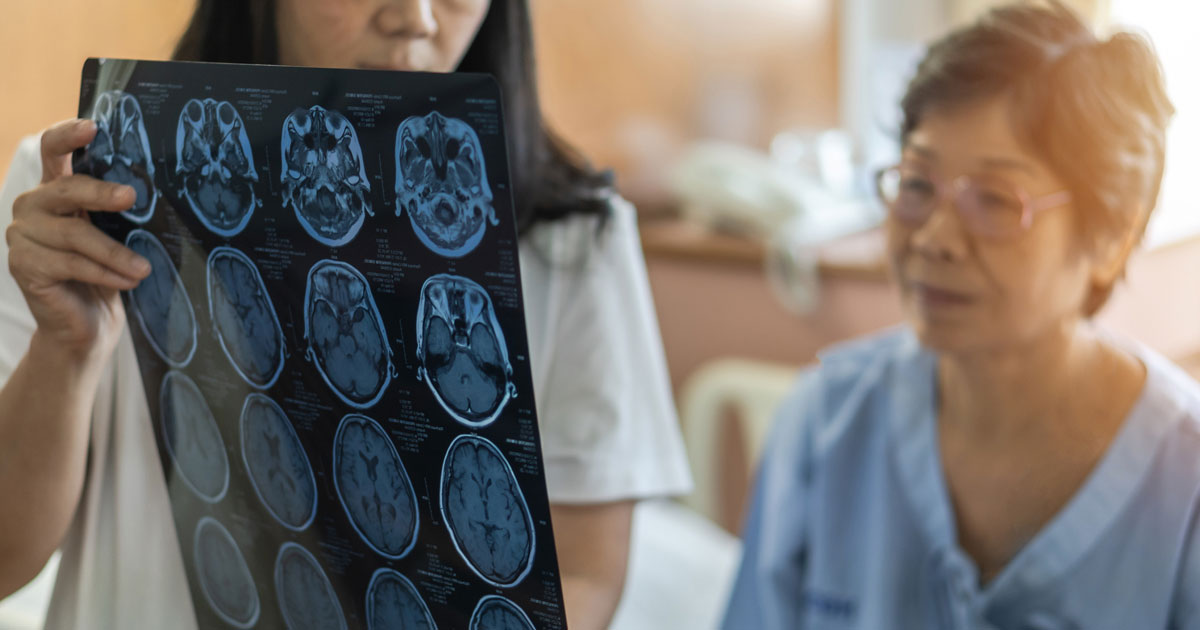
The elderly population in the United States is rapidly growing. In fact, the number of people over age 85 is set to triple by the year 2050. And because older adults are more likely to develop one chronic condition or another, it is important that families and the overall health care system are prepared to handle this growing need for healthy aging.
Many age related changes are common, such as a minor decline in vision and hearing, high blood pressure, muscle weakness, or a weakened immune system. But some health problems are not considered a part of the normal aging process for older adults. Chronic conditions affecting kidney function, leading to cognitive impairment, or otherwise undermining the quality of life of an elderly person need to be treated with geriatric medicine.
Geriatric Diseases
Geriatric medicine specializes in treating the conditions commonly experienced by older adults. There are numerous variables that make treating older adults different from their younger counterparts, including polypharmacy, vague presentation of symptoms, and challenges with attribution in cases where multiple health conditions are present at once.
Older adults are also more prone to developing age related diseases that younger people do not typically develop. High blood pressure might be an intergenerational problem, but issues like cardiovascular disease, ischemic heart disease, urinary incontinence, vascular dementia, multiple sclerosis, and other diseases are far more common among older adults.
Examples of Chronic Disease
While this is by no means a comprehensive list of ailments experienced by older adults, these and other chronic diseases are among the more common:
- Arthritis
- Cancer
- Chronic Kidney Disease
- Chronic Obstructive Pulmonary Disease
- Dementia, Alzheimer’s, and Parkinson’s
- Diabetes
- Osteoporosis
- Stroke
Arthritis
This chronic disease is one of the most common age related conditions older adults experience. Arthritis causes joint pain and chronic inflammation. The two types are osteoarthritis and rheumatoid arthritis. Osteoarthritis, the more common of the two, is a result of normal wear and tear. Rheumatoid arthritis is an autoimmune disease in which the immune system attacks the lining of the joints.
There is no cure for arthritis, but it can be managed with painkillers and corticosteroids. Symptoms include:
- Pain, stiffness, and tenderness of the joints
- Inflammation around joints
- Limited or restricted movement
Cancer
With over 200 different forms of cancer — prostate cancer, breast cancer, and lung cancer just to name a few — this is one of the most common issues that older people face. Cancer occurs through the rapid and abnormal replication of cells in the body, forming tumors than can spread via the bloodstream.
While cures have been discovered for many types of cancer, cancer treatment can be extremely invasive and takes a major toll on the body. However, the earlier it is detected, the better the chance of beating it. It is a good idea to consider conducting a periodic cancer screening. Here are the common symptoms:
- Discovery of an unexpected lump or mass
- Inexplicable weight loss
- Blood in a person’s stool, urine, vomit, or when coughing
Chronic Kidney Disease
Kidney infections, kidney inflammation, high blood pressure, and diabetes can all lead to chronic kidney disease. This condition affects the kidneys and can lead to kidney failure, and there is presently no cure. Another unfortunate reality is that early symptoms do not commonly appear — instead, the condition is usually identified through urine tests ordered for other medical conditions.
Older adults must therefore be diligent in reporting the following later-stage symptoms to their doctor as soon as they discover them:
- Bloody urine
- Shortness of breath
- Swollen ankles, hands, or feet
- Tiredness or a feeling of sickness
Chronic Obstructive Pulmonary Disease
The best known condition under this category of illness is chronic bronchitis. Bronchitis is caused by an infection affecting the lungs and airways, contributing to a buildup of excessive mucus. The body tries to displace this buildup through coughing.
Smoking is one of the biggest contributing factors to the development of chronic bronchitis, which means that quitting is the best way to overcome it. A healthy diet is also important — as are rest, hydration, and the treatment of headaches.
Symptoms of bronchitis include:
- Chest pain
- Fatigue
- Hacking, productive cough
- Headaches
- Runny nose or congestion
- Sore throat

Dementia, Alzheimer’s Disease, and Parkinson’s Disease
Dementia is an umbrella term used to describe a syndrome — or a collection of chronic conditions — in older adults that lead to problems with memory and cognition. This occurs when there is damage to brain cells or a loss of connection between cells that causes them to die. Symptoms of dementia include:
- Memory loss
- Difficulty with verbal expression
- Struggles with visual or spatial abilities
- Trouble with problem-solving or reasoning
- Difficulty managing complex tasks, critical thinking skills, planning, and organization
- Decline in coordination with motor functions
- Confusion and disorientation
- Personality changes
- Inappropriate behavior
- Depression, anxiety, paranoia, and agitation
- Hallucinations
Alzheimer’s disease is a specific type of dementia, accounting for up to 70% of cases. Caused by disruptive buildups of proteins in the brain, the symptoms of Alzheimer’s include:
- Trouble remembering details about people, places, or events
- Difficulty concentrating
- Changes to one’s personality like disinterest, suspicion, or aggression
- Apathy and depression
- Mood changes
- Confusion
- Impaired judgement or decision-making abilities
- Difficulty with speaking, swallowing, or walking
Parkinson’s disease is another type of dementia. This progressive disease is caused by a loss of nerve cells in the brain, which reduces the amount of dopamine necessary for normal cognitive functioning. While there is no cure, the symptoms can be treated. Here is what to look out for:
- Involuntary shaking of particular parts of the body
- Muscles that are stiff and inflexible
- Slow movement
Diabetes
Diabetes can develop during middle age — and sometimes even younger. But it most commonly develops among older adults, and it has to be managed as a lifelong condition. This disease occurs when the body is not able to produce enough insulin to ensure normal functioning.
The most common type of diabetes is Type II diabetes. This is when the pancreas is no longer capable of producing the appropriate amount of insulin. A person’s chance of developing diabetes can be reduced through lifestyle changes, including:
- A healthy diet
- A healthy weight
- Regular exercise
Type I diabetes accounts for about 10% of overall cases. It is an autoimmune disease, in which the body attacks the cells that produce insulin.
Osteoporosis
Osteoporosis is one of the most common conditions among older adults. This condition presents as a reduction in bone density, and it often goes undetected until a fall causes a break or fracture. Like losing muscle mass, losing bone strength is part of the normal aging process, but people with osteoporosis experience this decline more quickly than most people.
Osteoporosis can be treated with medication and supplements like calcium and vitamin D. Weight-bearing exercises and exercises designed to increase muscle strength can also help older adults manage the condition.
Stroke
A stroke occurs when the brain’s vital blood flow is cut off. This causes brain cells to die, it can lead to permanent disability, and it can be life threatening. Strokes are very common among older adults, so it is important to know the signs and symptoms so you can seek medical attention as soon as possible. A helpful acronym (FAST) makes it easier to remember.
- Face: Is the face drooping on one side?
- Arms: Is the person unable to lift both arms
- Speech: Is their speech slurred?
- Time: If so, do not waste time — seek medical attention immediately.
How to Manage Chronic Illness
Chronic diseases are persistent — sometimes even permanent — and so they require regular attention. Older adults should consider having a chronic care management team in place to help them achieve their health goals and maintain their quality of life. This is especially true of elderly patients who are managing multiple chronic conditions at a time.
As more older adults experience more age related changes, geriatric medicine will become an increasingly important part of their medical regimen. Older patients who are managing a chronic condition can benefit from the support of a home health care team. In addition to healthy eating and a healthy lifestyle, regular contact with reliable health professionals can help prevent poor health.
Keystone Health offers support for older patients in Idaho by providing house calls and other forms of care. Learn more about how we can help you maintain your quality of life throughout the aging process.
